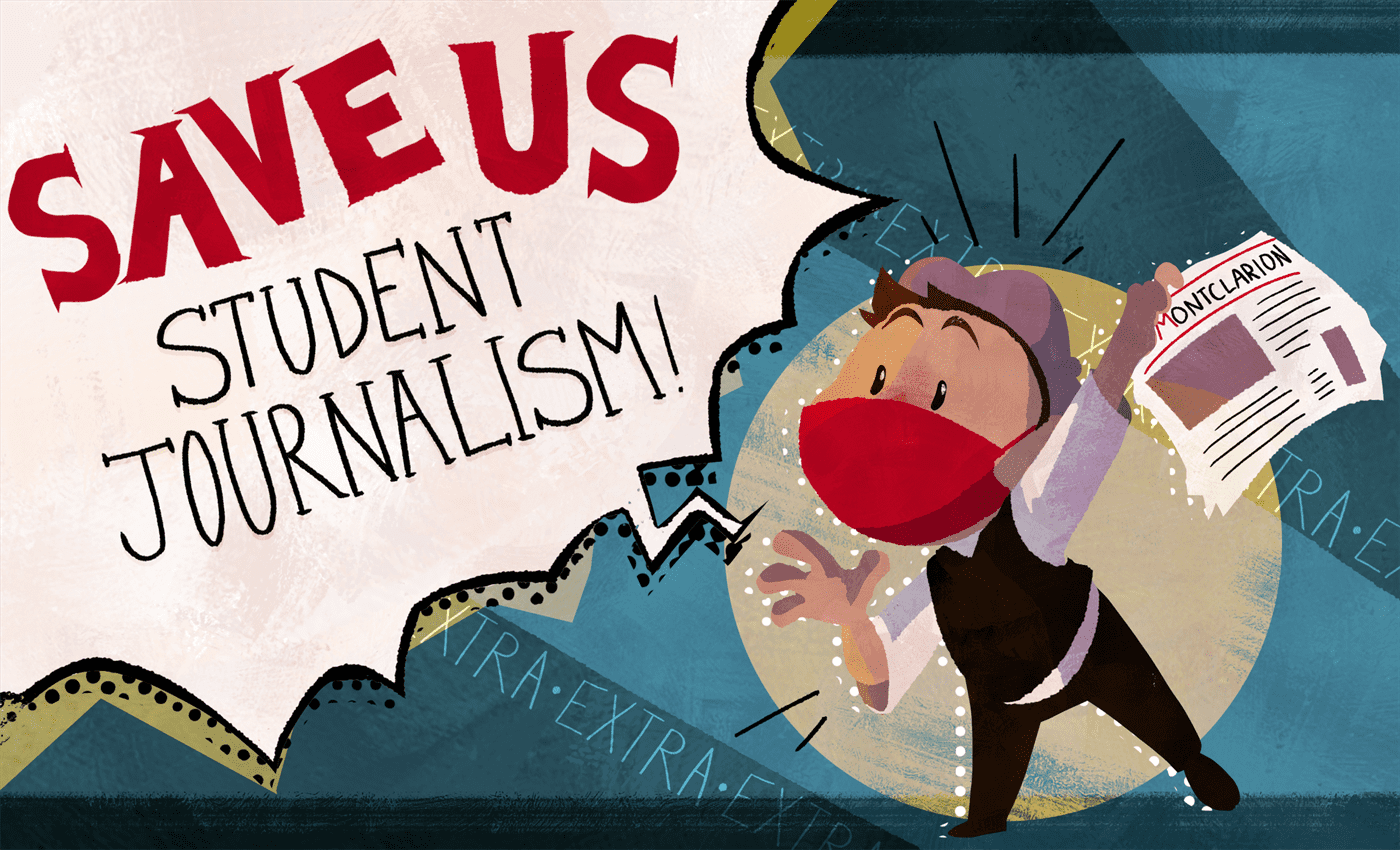With the coronavirus (COVID-19) pandemic continuing on without a concrete timeline for a vaccine, and most colleges now more than a month into their fall semesters, there have been many instances of health-threatening misconduct within university administrations across the country.
While Montclair State University’s administration has dealt with the pandemic in the midst of reopening quite well, room for improvements remains to be made. As a matter of fact, they will be changed due to an article published by your very own student newspaper, The Montclarion.
The effectiveness of Hawk Check, a procedure implemented by university officials to ensure that students who are traveling to campus are not experiencing any COVID-19 symptoms before arriving, was called into question by Casey Masterson, the feature editor for The Montclarion. Masterson recently wrote an opinion article about how students who fail to fill out the Hawk Check survey before coming to campus are never held accountable, due to the fact that there is currently no screening system in place to do so.
In a recent meeting, Joseph Brennan, the vice president for communications and marketing at Montclair State, told The Montclarion editorial staff how they plan to reevaluate Hawk Check and extend its measures in order to keep both residential and off-campus members of the Montclair State community protected.
Unfortunately, the leadership of many universities across the nation are not as attentive and diligent. Despite this widespread lack of mindfulness, student journalism is doing its part in exposing the holes in their respective systems and calling for the necessary improvements to be made.
“The Daily Tar Heel,” the student newspaper of the University of North Carolina at Chapel Hill (UNC), exposed their university’s administration for allowing in-person classes, despite being advised otherwise by the Orange County Health Department. Since the reopening of school, UNC has tested nearly 1000 students, placed 349 students in quarantine and 177 students into isolation.
Following the student newspaper’s expression of discontent with their administration’s blaming of the students for a cluster of cases and how it is the university’s fault for failing to encourage caution, in-person classes have since been canceled.
At the University of Notre Dame, Father Jenkins, the university’s president, tested positive for coronavirus. Notre Dame’s student newspaper, “The Observer,” followed the diagnosis with a front page editorial titled “Don’t make us write obituaries.” Then, over 200 Notre Dame students called for the resignation of Jenkins, citing the hypocrisy of blaming students for the spike in on-campus cases, while not being diligent enough to remain safe himself. Since then, Jenkins issued a public apology for his lackluster and dangerous approach to dealing with COVID-19 and promised to do better.
For the past few decades, local news has taken a beating. Subscriptions in community-based newspapers have sharply declined, causing many to shut down, leaving countless people to gather their news from nationwide media outlets whose priorities lie with national topics and TV ratings.
Within college communities, student newspapers are what keep members of the community informed on developments that are directly affecting them. This is because there is no one better to inform you of your community than a fellow member of your community.
Frank LoMonte, director of the Brechner Center for Freedom of Information at the University of Florida, spoke about the influence that the University of Florida’s student newspaper, “The Gator,” has on the community that it serves.
“They’re the ones who are going to get the invites to parties, and they’re the ones whose friends are going to be reporting symptoms and they’re following all the right people on social media, so they know first when there’s an outbreak or when there are unsafe conditions,” LoMonte said.
In Montclair State’s case, state funding has plummeted since the COVID-19 outbreak began. Tuition and room and board costs are likely to rise. While that increase in costs is understandable, given the surrounding circumstances, the administration and board of trustees must be held accountable for how they decide to spend that money.
Is News12, CNN or Fox News going to report on the matter in order to keep members of Montclair State’s governing body in check? Probably not.
Instead, it will be the students enduring that added financial hardship, serving as the watchdogs to make certain that the burden does not go to waste.
The health of Montclair State students, faculty and staff remains, and will remain, at risk until a point in time is made clear by health officials. The safety of the Montclair State community has been prioritized by the administration thus far and it is up to us, the students, to keep it that way.



